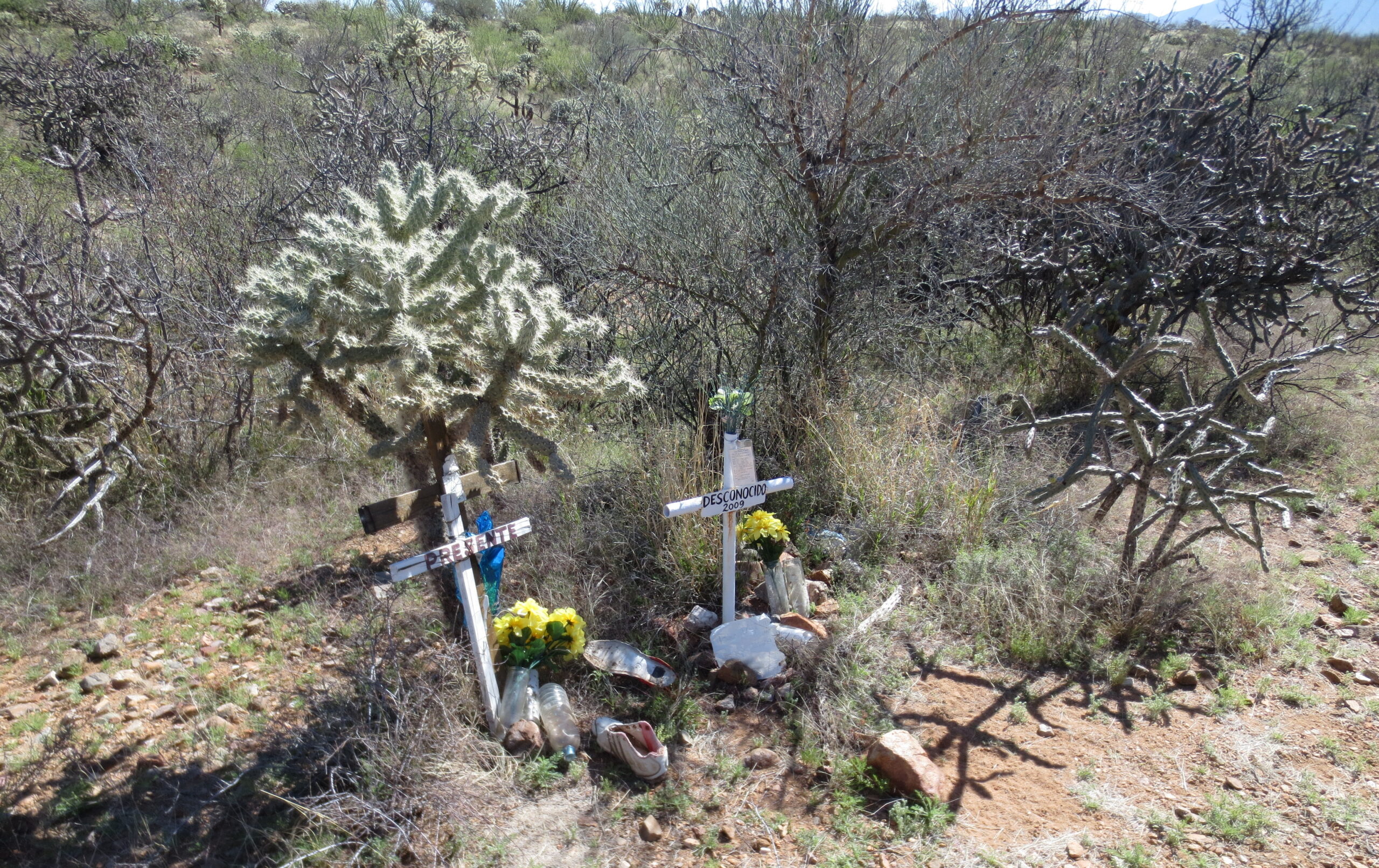Advance Reading: Members of the group should read Chapters Five and Six of Undocumented by Aviva Chomsky.
Note: Please have a laptop or other means available for people to listen together to the first segment of the BBC radio broadcast, “The Missing Migrants.”
-
Opening
The New Colossus, By Emma Lazarus (carved on the base of the Statue of Liberty)
Not like the brazen giant of Greek fame,
With conquering limbs astride from land to land;
Here at our sea-washed, sunset gates shall stand
A mighty woman with a torch, whose flame
Is the imprisoned lightning, and her name
Mother of Exiles. From her beacon-hand
Glows world-wide welcome; her mild eyes command
The air-bridged harbor that twin cities frame.
“Keep ancient lands, your storied pomp! cries she
With silent lips. “Give me your tired, your poor,
Your huddled masses yearning to breathe free,
The wretched refuse of your teeming shore.
Send these, the homeless, the tempest-tost to me,
I lift my lamp beside the golden door! -
Gather
Invite group members to share any reflections or feelings that arose after last week’s conversation, or in relation to the reading for this week.
-
Discussion: PT 1
First, please have someone from your group read out this quotation from Chapter Two of Undocumented, which you read for the discussion in Unit I:
“Was it a paradox that the Border Patrol was created in the 1920s, just when agribusiness, with its need for migrant labor, was rapidly expanding in the Southwest? Several scholars argue that in fact the system worked well for farmers who needed migrant workers. Mexican workers could still cross the border easily, but because they became more deportable, the new laws also made them more exploitable [….] Deportability was part of that discipline. Local officials served farmers’ interests by carrying out deportation raids in cases of union organizing or, sometimes, just before payday.”
- In light of the reading you did for this week, what parallels do you notice between Chomsky’s description of the plight of undocumented workers in the 1920s and our own time?
- What are some ways in which Chomsky’s observations and assertions conflict with the conventional assumptions underlying our current immigration debate?
-
Listen
Listen together to the first segment of “The Missing Migrants,” a BBC World Service radio documentary about efforts to identify the remains of people who lost their lives trying to cross the U.S.-Mexico border. The first half of this broadcast is about 22 minutes long.
-
Discussion: PT 2
- As you listened to the stories in this broadcast, what feelings arose for you?
- As you learned about the groups featured in “The Missing Migrants”, do you view the work of identifying human remains in the border region as a politically neutral act, or as an engaged action on one or another side of the migration debates?
- In what ways might the work of identification and linking back to families be considered a religious or a spiritual act?
-
Closing
Prayer for Travelers
This is a prayer for all the travelers.
For the ones who start out in beauty,
who fall from grace,
who step gingerly,
looking for the way back.
And for those who are born into the margins,
who travel from one liminal space to another,
crossing boundaries in search of center.This is a prayer for the ones whose births
are a passing from darkness to darkness,
who all their lives are drawn toward the light,
and keep moving,
and for those whose journeys
are a winding road that begins
and ends in the same place,
though only when the journey is completed
do they finally know where they are.For all the travelers, young and old,
aching and joyful,
weary and full of life;
the ones who are here, and the ones who are not here;
the ones who are like you (and they’re all like you)
and the ones who are different (for in some ways, we each travel alone). This is a prayer for traveling mercies,
And sure-footedness,
for clear vision,
for bread
for your body and spirit,
for water,
for your safe arrival
and for everyone you see along the way.— Angela Herrera
